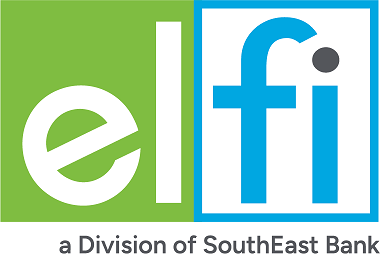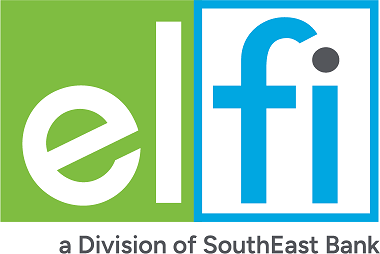There are several ways you can pay for nursing school, including grants, scholarships, work study, federal loans, and private student loans. Most students need to rely on a combination of these methods to cover all their nursing school expenses. Here’s an overview on nursing school costs and how to cover them.
Nursing Tuition and Fees
The average amounts for nursing tuition and fees fluctuate between public and private institutions. According to NurseJournal, the average cost for a 2-year associate degree in nursing (ADN) is $12,300. The average cost for a 4-year bachelor of science in nursing (BSN) is $30,880, and the master’s degree in nursing (MSN) has an average price of $29,970. Those pursuing a doctor of nursing practice (DNP) can expect an average total cost of $33,810.
Federal Financial Aid
Federal financial aid includes grants, federal work study, and federal loans. To qualify, you’ll need to start by submitting the Free Application for Federal Student Aid (FAFSA) which is the online form that determines your eligibility.
Free Application for Federal Student Aid (FAFSA)
You can complete and submit the FAFSA online via the Federal Student Aid website. If you have not already created a user account, you’ll need to set one up and establish an FSA ID. If you are a dependent student, your parents will also need to complete the form. Once your FAFSA is submitted, a Student Aid Report (SAR) will be sent to your school with information about your financial aid eligibility.
Work Study Programs
After your financial aid office reviews your FAFSA results, they will let you know if you can be placed in a work-study program. This is basically a part-time job where your earnings help cover the cost of nursing school.
Federal Student Loans
There are two types of federal loans you may qualify for: Direct Subsidized Loans and Direct Unsubsidized Loans. Subsidized loans are based on need whereas unsubsidized loans do not require a demonstration of need to qualify. Your interest is covered by the government on subsidized loans during your in-school period and your grace period. But you are responsible for the interest on your unsubsidized loans. Your financial aid office will relay your exact loan amounts.
Private Student Loans
Private loans for nursing school can be used once you’ve exhausted your federal or free aid. Private student loans do require a credit check, so applying with a creditworthy cosigner may improve your chances of getting approved. Plus, having a cosigner may help you qualify for a lower interest rate.
Interest Rates
The interest rate you can expect to pay will depend on the types of loans you borrow. As a general rule, federal loan rates are lower than private loans, partly because they have a fixed interest rate. The interest rates on private student loans can be fixed or variable, and lenders will offer their lowest rates to the most creditworthy borrowers and cosigners.
Nursing Scholarships
To help reduce the total amount of student loans you may need to borrow, you can search and apply for scholarships. There are nursing scholarships for undergraduate programs, as well as master’s and doctoral nursing programs. And some scholarships may be aimed at nursing specializations, such as critical care or nurse educators. Below is a list of scholarship resources and individual scholarships.
AACN Scholarships
- About: The American Association of Colleges of Nursing (AACN) has several scholarship programs that help nursing students across different academic levels.
- Eligibility: Varies
- Award: Varies, usually starts at $5,000
ENA Foundation Scholarships
- About: The ENA Foundation helps students with scholarships and research grants in the field of emerging nursing.
- Eligibility: Varies. Application periods are from December to August.
- Award: Varies
A Nurse I Am Scholarship
- About: A Nurse I Am is a documentary that turned into a movement. Today, the scholarship program has awarded over $200,000 to deserving nursing students across the country.
- Eligibility: Must be an undergraduate or graduate level nursing student at an accredited program pursuing an AND, BSN, LVN/LPN, RN, MSN, PhD, NP, DNP, or APRN.
- Award: $3,000 (total of 10 scholarships available)
Meland Foundation Scholarship
- About: The Meland Foundation has a goal to help further the pediatric specialty and to enhance the ability of families to care for loved ones.
- Eligibility: BSN degree holders in the NJ-NY-CT-PA area who wish to pursue the MSN, DNP or Nurse Practitioner degree with a pediatric specialty.
- Award: $2,000 to $5,000
Johnson&Johnson Scholarship Database
- About: Johnson&Johnson has aggregated close to 350 nursing scholarships on their website. They cover multiple disciplines and academic levels.
- Eligibility: Varies.
- Award: Varies
Tuition Reimbursement for Nurses
Many employers, hospitals, and healthcare systems offer tuition reimbursement for nurses. In addition to competitive pay and strong retirement plans, many companies extend tuition reimbursement as a benefit to attract and retain talent. In some cases, this may apply to loan forgiveness. In other cases, it could assist with continuing education.
Nursing Loan Forgiveness Programs
There are student loan forgiveness programs for nurses that can make a sizeable dent in your nursing school debt. Some are federal programs and others may be offered by individual employers.
Below are some resources to help you find organizations that publish tuition reimbursement and loan repayment programs for nursing professionals:
Johnson&Johnson Database of Employers
The nursing section on the Johnson&Johnson website includes over 100 programs with tuition reimbursement or loan forgiveness programs. You will find everything from the U.S. Department of Veterans Affairs to state-based healthcare systems and private hospitals. Links to individual websites are included.
HCAI Loan Repayment Programs
The California Department of Health Care Access and Information (HCAI) lists several loan repayment programs on their website that are specific to nursing professionals, including vocational nurses and BSN holders.
Public Service Loan Forgiveness (PSLF)
The Public Service Loan Forgiveness program is available to borrowers with Direct Subsidized, Direct Unsubsidized, Grad PLUS, or Direct Consolidation loans who have already made 120 qualifying payments in an eligible repayment plan.
National Health Service Corps (NHSC)
The NHSC Loan Repayment Program is a loan forgiveness program that applies to nurse practitioners, certified nurse-midwives, and other primary care clinicians. You must be serving in a discipline-related Health Professional Shortage Area (HPSA).
State Based Loan Forgiveness
Nearly every state now offers some type of loan forgiveness for healthcare professionals, including nurses. You can typically find these through the state or county’s Department of Health and Human Services, Veteran’s Affairs Office, or similar agency.
Nurse Corps Loan Repayment Program (NCLRP)
The Nurse Corps Loan Repayment Program is one of the most generous of its kind. If you plan on becoming a Registered Nurse (RN) or Advanced Practice Registered Nurse (APRN), this program is worth looking into ahead of time. Requirements include being willing to serve at a critical shortage facility or serve as nurse faculty at an eligible school of nursing.
















